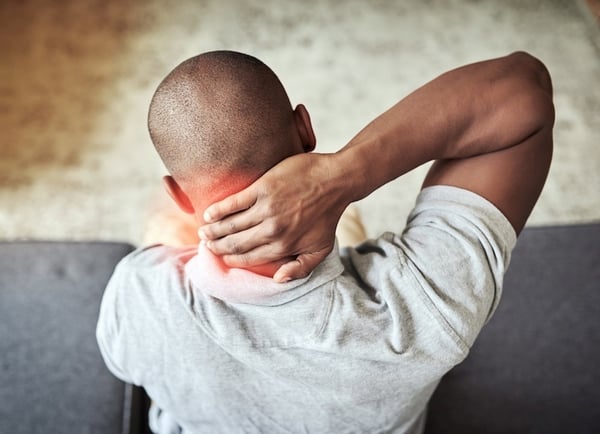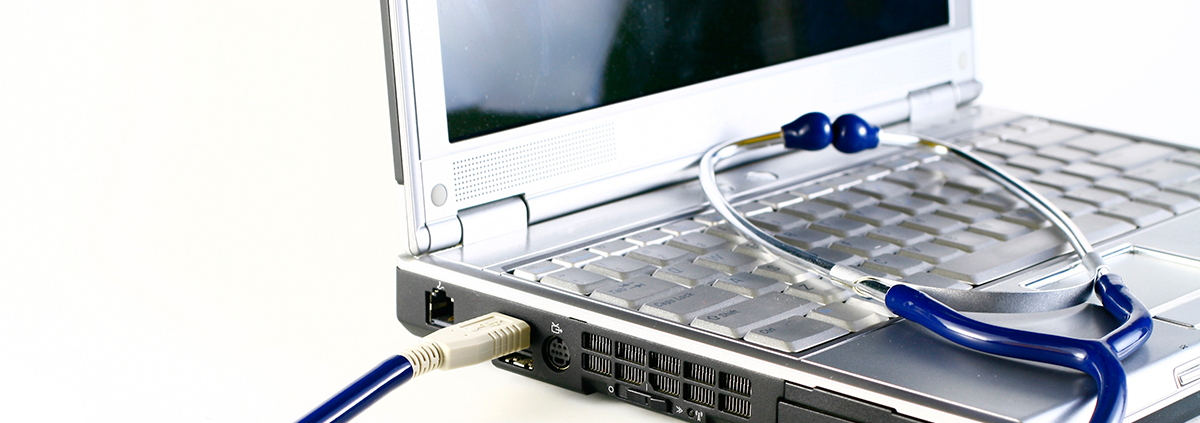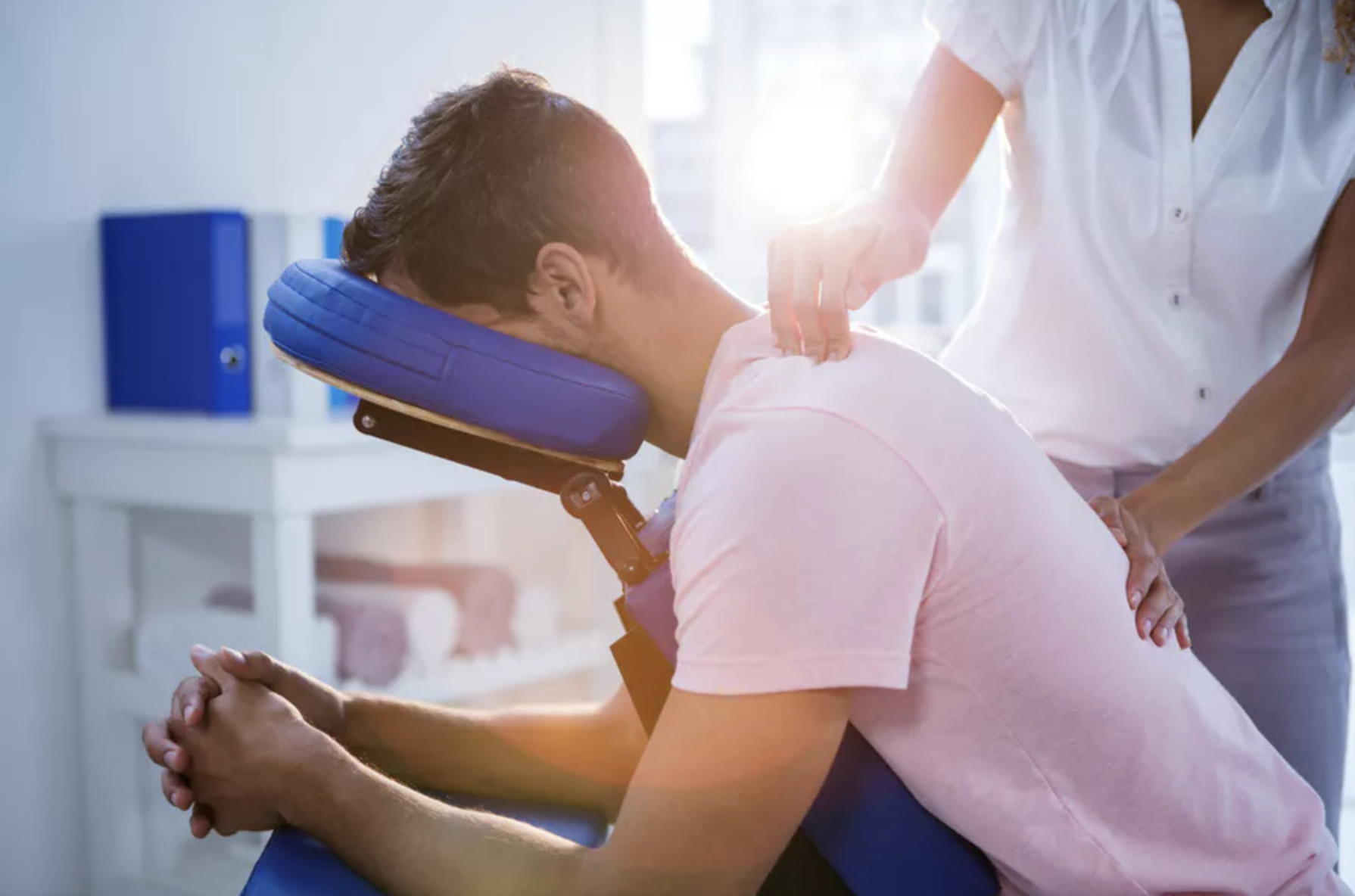At one point or another, we have all tried to crack our neck by rolling it.
And, we've all experienced the cracking sound or popping noise after we've done it.
Generally speaking, this is expected, and it's similar to cracking our knuckles.
Some people do it because it provides an instant relief caused by the loosening of our joints.
If you do this, you likely don't think about it too much and do it out of habit.
When you crack your joints, the popping, cracking, and stretching sounds are due to a release of oxygen that has accumulated between your joints and ligaments.
The medical term for these cracking sounds is cavitation.
When you feel relief after cracking the joints in your cervical spine, it's due to an increase in your range of motion.
This relief can be amplified if it's caused by physical activity or exercise.
As long as you don't experience any discomfort when you crack your neck, there usually isn't anything to worry about.
However, always use caution if you crack your neck or any other joint, so you don't damage the joint.
In some cases, however, popping and cracking in the neck may call for a trip to see your chiropractor.
In the article below, we'll talk about why your neck cracks when it rolls, and when you may need to see a chiropractor.
Table of Contents
- What's Happening When You Roll Your Neck
- If Neck Cracking Is Related to Arthritis
- If Neck Cracking is Related to Snapping Ligaments
- Is Cracking My Neck Healthy?
- When Should You See a Chiropractor About Cracking Your Neck?
- How Your Chiropractor Helps with Neck Pain
- Contact Florida Spine and Injury
What's Happening When You Roll Your Neck
The main reason your neck cracks when it rolls is cavitation.
Cavitation occurs when gas bubbles in the synovial fluid escape a tight space.
Your synovial fluid is a lubricant similar to the grease applied to metal gears so that they operate smoothly and without friction.
The fluid is formed by a combination of carbon dioxide, nitrogen, and oxygen.
It can be found in our joints, which in the case of our necks, run along each side.
Think of your neck joints as capsules. When they bubble up with oxygen molecules, the range of motion is constrained.
When the bubbles are released when after rolling your neck, they make a series of popping sounds that which is what makes the cracking sound.
However, the popping sound won't happen every time.
If Neck Cracking is Related to Arthritis
With cavitation, the release of oxygen bubbles happens quickly and stops.
It is usually firm, instant, and non-repetitive. It will take time for the bubbles to pressure up before you can hear them again when cracking your joints.
With chronic arthritis, cartilage tissue loses its quality, thereby becoming rough and more likely to make noises during certain movements.
This is usually a repetitive condition that does not result in relief or an improved range of motion.

If Neck Cracking is Related to Snapping Ligaments
Your ligaments and tendons are the connective tissue that links your joints to your bones.
Sometimes, this connective tissue can tighten and snap.
If this happens to you, you'll feel a slight displacement or realignment that could be accompanied by a popping sound.
If that happens, it typically isn't uncomfortable under normal conditions.
This happens more often with specific movements of the knees and shoulders.
You could also hear this cracking noise when you do certain stretches or yoga poses.
Is Cracking My Neck Healthy?
Yes and no.
If you're rolling your neck to relieve pressure and improve your range of motion, it's fine as long as you are doing certain stretches that won't cause injury.
There is also an endorphin effect because the pituitary gland comes into play.
You also get the undeniable satisfaction of carrying out a physical habit.
However, when you have to crack your neck to feel better because the pressure bothers you, you should visit a chiropractor.
If your chiropractor recommends certain exercises or stretches, they will watch you do them and keep an eye on your form and reaction.
If they notice any signs of discomfort, they will guide you through a modification.
If you wake up one morning with a stiff neck, rolling your neck could make it worse because your muscle tissue will be strained, and there's a chance that you could overextend the ligaments.
When Should You See a Chiropractor About Cracking Your Neck?
If rolling your neck is accompanied by pain, it's the first sign that something may not be right.
If you snap a tendon, it might not hurt very much, and the feeling should subside after a few moments.
But you still have to worry about lingering discomfort.
There are a few other neck cracking situations that should be checked out by your chiropractor:
- There's constant pressure in your neck after a car accident. This is usually related to cervical strain.
- Your neck feels swollen while rolling it. Remember that this swelling may not be visible at all. If you sense swelling that you can't feel, this could be a symptom of other neck issues.
- Cracking is persistent and occurs each time your neck reaches a particular position. This isn't normal and may eventually result in discomfort.
How Your Chiropractor Helps With Neck Pain
If you notice any of the symptoms above, you likely have misalignments in your joints.
If you think you don't have adequate mobility of your neck, you might think that cracking will bring relief.
That's not always true, and you should see a chiropractor.
Chiropractors manipulate joints to bring them back into proper alignment.
You can't realign your joints on your own by rolling and cracking your neck alone.
Like we mentioned earlier, substantial cracking may even make it worse.
You could end up overexerting your ligaments and muscle tissue, making joint misalignment even more likely.
When your chiropractor adjusts your neck, you may or may not hear a popping sound.
This isn't relevant because they are putting your joints back in place so they stop bothering you.
Along with rotating your neck and repositioning your cervical spine so the joints in your neck realign, your chiropractor can recommend other stretches and exercises to reduce the buildup of oxygen bubbles in your facet joints.
You will undoubtedly be asked about physical activities and habits that you do not realize could be increasing your risk of joint misalignment.
Click here to learn how to know if your neck is out of alignment.
Contact Florida Spine and Injury
In the end, neck cracking to relieve the pressure is safe.
And, if you happen to hear cracking or popping, you have nothing to worry about.
If you don't feel any pain after rolling your neck, there's no real harm in doing so every once in a while.
You'll be even better off if you do them in combination with stretching exercises recommended by your chiropractor.
However, if there is ever pain associated with it, you should stop doing it right away and see a chiropractor.
The Florida Neck Pain Chiropractors at Florida Spine and Injury are experienced in helping patients find relief from neck pain.
If you're ready to see a chiropractor about your neck pain, click the button below to schedule a Free Consultation with Florida Spine and Injury.
-1.png?width=120&height=108&name=Ethos%20Health%20Group%2c%20(1)-1.png)




Leave a Comment